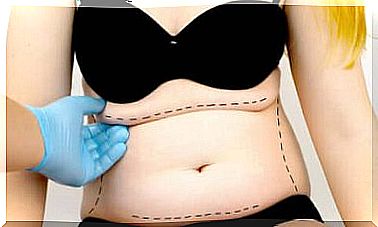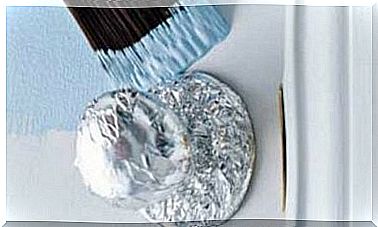How To Fight Constipation In Infants
The causes of constipation in infants can be varied. However, the type of feeding is a determining factor for the baby to be able to evacuate under normal conditions. To learn more, read this article.

To know how to fight constipation in infants, you must first determine what the normal stool pattern is for each baby. It is considered normal for an infant to have a bowel movement after each meal.
But it is possible that several days pass between bowel movements. This duration can be considered as normal!
It all depends on how the baby is fed, what he eats, what he drinks, his physical activity, how quickly he digests his food. And, of course, the legacy left by his parents.
The case of a breastfed baby
For a newborn baby who is exclusively breastfed, there is no normal number of bowel movements or times. The stools are usually yellowish-orange and soft, although there are days between stools.
A baby who is exclusively breastfed may have a bowel movement 4 to 5 times a day to once a week.
Breast milk is the perfect blend of the highest quality nutrients, proteins and fats, so there are babies who leave “little” residue for elimination.
As soon as the newborn arrives in your arms and you begin to exclusively breastfeed him, you will gradually learn his habits and how certain foods that you eat while breastfeeding make him feel good.
The case of a baby fed formula
One of the advantages of breast milk over formula is that with breast milk there is no chance that infants will suffer from constipation.
While infant formula can be difficult for the newborn gut to digest.
Some ingredients in infant formula can cause constipation in babies. Finding the right formula for your baby can be a stressful process.
A stress that is sure to affect the newborn and complicate matters even more.
Once you’ve figured out the right formula for your child, it’s normal to have regular bowel movements once a day.
However, preferring breastfeeding over formula is the best thing you can do for your baby’s overall health.
When solid eating begins in infants

Problems with constipation usually start when the baby begins to eat solid foods.
But, even if you keep breastfeeding, as long as the food consists of vegetables and fruits, there probably won’t be any signs of constipation.
The first signs of constipation appear when the consumption of cereals begins. In particular industrial rice-based foods:
- Less frequent bowel movements compared to your baby’s normal bowel movements.
- He has difficulty evacuating
- Stools are harder and drier
Other causes of constipation in infants
If your baby is dehydrated, the stool will be even drier and harder. Evacuation will be more difficult because its system responds to dehydration by absorbing more fluid.
Both from the food and fluids he consumes and from what has already been processed in his gut.
Additionally, there are medical conditions that can lead to constipation, such as hypothyroidism, botulism, certain metabolic disorders, and food allergies.
Hirschsprung’s disease or congenital megacolon is less common. It is a disease that is diagnosed in the first weeks of life and prevents the proper functioning of the intestine.
How to relieve constipation in babies?
- Make sure he moves. If he’s crawling, encourage him to do so. If not yet, lay him on his back and bend his legs up and down to his chest, very gently, as if you were pedaling a bicycle.
- Massage her stomach. Below the navel, about three fingers to the left, press gently and firmly until you feel a lump. Hold the pressure for about three minutes.
- Change the brand of formula. Talk to your pediatrician about what might be the best option for your baby.
- Although fruit juices are not recommended for newborns, check with your doctor to see if you can give them plum or apple juice incorporated into your breast milk or infant formula.
- If your baby has already started eating solid foods, avoid cooked rice and carrots. Instead, incorporate mashed plum, peach or pear into your diet.
Be careful with infants
- A baby cannot take laxatives without the doctor’s permission.
- Don’t follow the popular advice to stimulate the anus with a thermometer. It can be very dangerous for your baby.
The use of glycerin suppositories for severe constipation should be under strict medical supervision, as frequent use is addictive to have a bowel movement.
When to alert your doctor

- Constipation does not improve with a change in diet.
- Painful and bloody stools.
- He is losing weight and does not want to eat.









